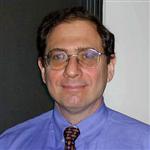 Jerry Addler has published his New Year’s resolution in Newsweek,
Jerry Addler has published his New Year’s resolution in Newsweek,
I will not report on any amazing new treatments for anything, unless they were tested in large, randomized, placebo-controlled, double-blind clinical trials published in high-quality peer-reviewed medical journals. If that means not telling NEWSWEEK’s readers about, say, a new magnetized-water cure for osteoporosis, cancer and autism—well, there are infomercials to fill that gap. The risk that I might overlook the next Lipitor is outweighed by the danger of hyping the next laetrile, the discredited 1970s-era miracle cancer drug made from apricot pits that failed to cure Steve McQueen.
educate journalists and the public that “just because someone with a Ph.D. or M.D. performs a clinical trial doesn’t mean that [it] possesses any credibility whatsoever … The vast majority are worse than worthless.”
researchers, even those without a direct financial stake in the outcome of a trial, often have a psychological investment in what they’re testing. Their papers get published because the editors of journals in fields like homeopathy start from the premise that the whole thing isn’t a preposterous hoax, as Bausell and most mainstream doctors believe. If someone really does cure cancer—whether a drug company researcher or a Tibetan herbalist—The New England Journal of Medicine or The Journal of the American Medical Association will be happy to publish the news.

Whoa, LCN. From those comments to Addler’s post:
“The peer-reviewed journal Similia, which I edit, makes its editorial decisions based on just one premise: that the substance capable of removing the entirety of a patient’s illness is that substance that can most closely reproduce the patient’s symptoms in the healthy. That premise remains almost undisputed in modern medicine.
Yours sincerely,
John Harvey
Editor, Similia”
These people really do live in another universe.
I’ll be putting that book on my wishlist.
from http://blogs.kitsapsun.com/kitsap/letters/archive/2006/09/steve_mcqueen_he_didnt_die_of.html
It is well known that Steve did suffer from Mesothelioma, but it was not the cause of his death! On Nov. 4, 1980, he checked into the Santa Rosa Clinic in Juarez, Mexico. On Nov. 6, he underwent surgery for the removal of an abdominal tumor, which when removed, weighed in at five pounds!
The surgeon was Dr. Cesar Santos Vargas, and the operation was a success. However, Steve suffered a heart attack while in the operating room. Sixteen hours later, he suffered a second and massive heart attack while undergoing recovery. Steve McQueen died at 3:50 a.m. on Nov. 7, 1980. For the record, the official cause of his death was a massive heart attack and not Mesothelioma.
A classic case of “the operation was a complete success, unfortunately, the patient died’?